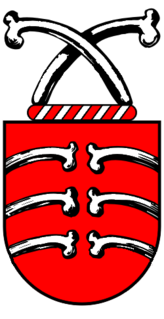Pinto is an Italian, Spanish, and Portuguese name for a person with a speckled or dark complexion. The surname Pinto is largely found in the south of Italy and in some cases, it may be derived from the word pinto, which, in the Neapolitan dialect, means turkey or bird, and might have referred to one who boasted or strutted like this bird. It is linguistically related to the name of Columbus' ship La Pinta, meaning The Painted One, The Look, or The Spotted One. Also related, though greatly diverging in meaning, is the unit of measurment Pint, which comes from the Old French word pinte and perhaps ultimately from Vulgar Latin pincta meaning "painted", for marks painted on the side of a container to show capacity.

João Manuel Vieira PintoCvIH is a Portuguese retired professional footballer who played mostly as a forward.

Guarani Futebol Clube is a Brazilian football club located in Campinas, São Paulo. It is also known as Bugre, a popular term for an Indigenous Brazilian, and its supporters are known as bugrinos.

Francisco José Pereira Pinto Balsemão, is a Portuguese businessman, former journalist and retired politician, who served as Prime Minister of Portugal, from 1981 to 1983.

José Augusto Pinto de Almeida, known as José Augusto, is a Portuguese retired footballer who played as a right winger, and a coach.
Antunes is a surname in the Portuguese language, of patronymic origin meaning "son of Anthony (António)". It is derived from the root name Antonius. The early origin of the name traces back to Tuscany.
Santos is a surname of Christian origin in Portuguese, Spanish, Italian, French languages. The English translation of Santos is Saints. A singular version, Santo, may be seen.
Soares is a common surname in the Portuguese language and Galician, namely in the Portuguese speaking world, as well as other places. It was originally a patronymic, meaning Son of Soeiro. It is equivalent to the Spanish surname Suárez. Notable people named Soares include:

Ziraldo Alves Pinto, usually referred to mononymically as Ziraldo, is a Brazilian author, painter, comic creator, and journalist. His books have sold about ten million copies, have been translated to many foreign languages and adapted to the theater and cinema. His children's books, such as the popular O Menino Maluquinho, have also been the basis of successful films and television series in Brazil.
Antonio is a Bosnian, Catalan, Croatian, Galician, Italian, Portuguese, Romanian, and Spanish masculine given name of Etruscan origin deriving from the root name Antonius. Antônio and António are Portuguese masculine given names also deriving from Antonius. It also occurs as a surname.
António Coelho Pinto is a retired Portuguese long-distance runner.
Nunes is a common Portuguese surname, originally a patronymic meaning Son of Nuno. The Spanish variant is Nunez.
Almeida is a common surname in the Portuguese language, in Portugal, Brazil and India. It was originally a toponym, derived from the town of Almeida.

Costa, sometimes Costas, da Costa, Da Costa, or Dalla Costa, is an Italian, Portuguese and Spanish surname. The surname spread throughout the world through colonization. It is also a surname chosen by Jews and other religious groups due to Roman Catholic and other Christian conversions.

Jaques Morelenbaum is a Brazilian instrumentalist, arranger, conductor, composer and music producer.
Sousa, Souza, de Sousa, or de Souza is a common Portuguese-language surname, especially in Portugal, Brazil, East Timor, India, and Galicia. In Africa, the name is common among people with Portuguese and Brazilian roots in Ghana, Togo, Benin, Nigeria, Angola, São Tomé and Príncipe, Cape Verde, Guinea-Bissau, and Mozambique.
Ferreira is a Portuguese, Spanish, French, South African and Indian surname, meaning 'blacksmith'. Other spellings are Ferreyra, Ferreiro, Ferrero, Ferrer, Ferraro, Ferreirua, Ferreiroa, Ferreiró, Ferreiros. People with those names include:
Mota is a Portuguese and Spanish surname. The name is topographic, originally used for someone who lived near a fortified stronghold. Mota has several versions including Motta (Italian), Motte (French), and Mott or Moat (English). Notable people with the surname include:






